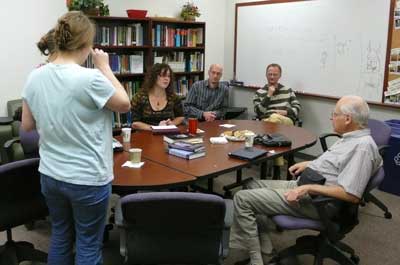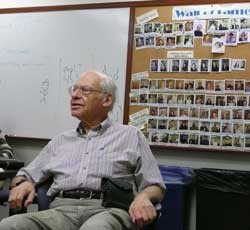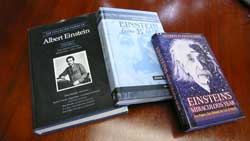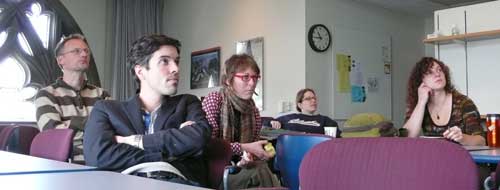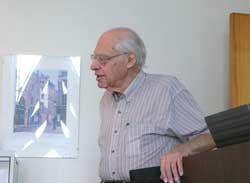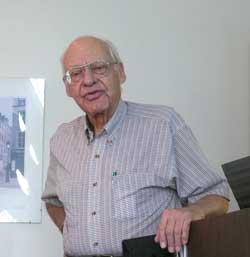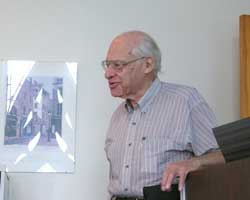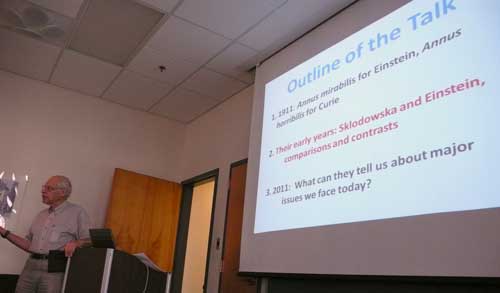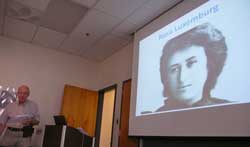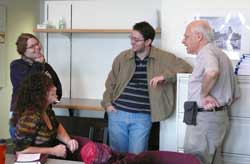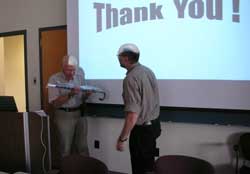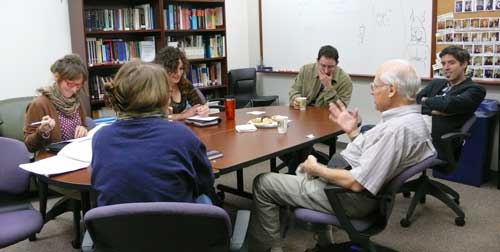
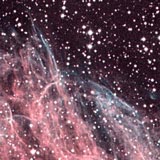
![]()
home
::: about
::: news
::: links
::: giving
::: contact
![]()
events
::: calendar
::: lunchtime
::: annual
lecture series
::: conferences
![]()
people
::: visiting fellows
::: postdoc fellows
::: resident fellows
::: associates
![]()
joining
::: visiting fellowships
::: postdoc fellowships
::: senior fellowships
::: resident fellowships
::: associateships
![]()
being here
::: visiting
::: the last donut
::: photo album
|
Stachel, Einstein, Curie "I will be visiting Pittsburgh for a couple of days this week...," the email said, "...I'd love to get together..." The email is from my old mentor, John Stachel. It was an opportunity too wonderful to miss. Stachel is a figure of legend in Einstein studies. He is a physicist who turned to history of physics. He oversaw the final collection and collation of Einstein's papers in Princeton in preparation for the Einstein Papers publishing project. He is the founding editor of the series and edited its magisterial Volume 2, which contains the papers of Einstein's anus mirabilis, 1905.
John also has meant a lot to me personally. In the early 1980s, when I was know-nothing, know-no one fresh PhD, he had hosted me in Princeton while he was working on the Einstein papers. It was there from him that I learned how to do real history of science. His connections brought me to Pittsburgh, my present home. It was he who recalled the old name of the Cathedral of Learning, the "Heights of Ignorance," and may even have been the origin of the quip. I thought about the people here in Pittsburgh. To most of them, Stachel is just a name that appears in discussion or as a citation. They have no sense of him as a broad and lively, witty and quirky, punny and scolding raconteur. This was my chance to change that.
Fellows and graduate students slowly trickled in and John held court. The conversation proceeded at dizzying speed over each person's special interest and over the many more areas to which which John's expertise extended. He had not planned to meet such a group. However I had gambled that John loves the friendliness of an adoring crowd and that is just what we were providing. In return, we got a lot more than we expected. John was on his way to the History of Science Society meeting in Cleveland. "What are you speaking on?" I asked. "Einstein and Curie," he replied. "Is there time for me to try out the talk?" There was. So we moved ourselves into our conference room and, feeling members of an inner circle, saw the dress rehearsal.
The talk closed. The HSS allows him 20 minutes; he'd now spoken for 40 minutes. "I'll have to cut some things out," he concluded. John's decision to give a talk in the Center had set in motion a tradition that could not be breached. I presented him with an umbrella. There was still a little time left before John had to leave for Cleveland. When I caught up with him, he was holding court again in our lounge. John D. Norton |
